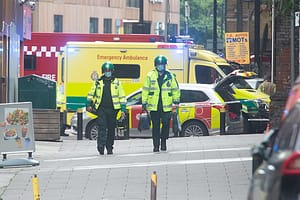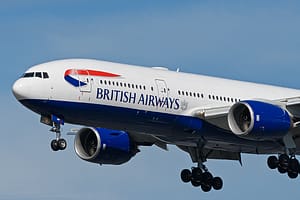Londoners are bracing themselves for the fifth Tube strike this year. Reasons for walk outs have been everything from job cuts, staff treatment and ticket office closures.
Now we all are well aware of how the stand-off between London Underground and the Rail, Maritime and Transport (RMT) leaves the commuter stranded. On the day of the Tube strike, collective groans, swear words and flaring tempers are the order of the day.
So here are three reasons why the Tube strikes MUST NOT go ahead:
1. Commuter chaos & Londoners want strikes banned
The day of the strike is a day in hell for the London commuter. Infrequent Tube trains or no service often leads to packed buses, causing gridlock on roads. It’s basically the most inconvenient journey ever for the London commuter.
This is what the Tube stations look like on the day of a strike:
Earls Court was fun again this morning #tubestrikepic.twitter.com/DRtg99f4f8
— Lucy Tobin (@lucytobin) April 30, 2014
Take a look at the commuter chaos the strikes have caused this year:
February 2014
Commuter chaos as Tube strike hits London
April 2014
Tube strike chaos for second day as walkout continues
July 2014
Power workers lengthen Tube strike to two weeks, as Tour de France arrives in London
August 2014
Central and Waterloo & City line Tube strike today causes commuter misery
Last year, a poll revealed that almost two thirds of Londoners think “it is too easy for Tube workers to go on strike”. While half voted for Tube strikes to be banned altogether, some 47% were in favour of government legislation to make strikes illegal.
2. £600m in lost working hours
The London Underground strikes in February cost London small businesses £600m in lost working hours, business and productivity. If each strike costs the London economy millions, just imagine the economic impact of all the strikes put together.
A poll by the Federation of Small Businesses (FSB) found that London businesses lose an average £1,297 each because of Tube strikes.
In London, 58% said they were negatively affected by Tube strikes which resulted in cancelled meetings (59%), staff absences (43%) and difficulty transporting goods and services (18%).
John Allan, National Chairman, Federation of Small Businesses, at the time said: “With small firms estimating a cost of £600m across the capital, they are rightly concerned about the impact a second round would have. And, as the ripples could be felt outside London, the economy just can’t afford that right now. We would encourage businesses to look at contingency plans for the next planned action. Ultimately, those businesses where staff and customers rely on the Tube could be put at a further disadvantage.”
3. London Underground will make “no compulsory redundancies”
Transport for London is on a mission to save £4.2bn by 2020. It’s expecting to achieve some of this by saving £50m a year by closing ticket offices.
However, it’s offered various solutions to Tube unions including reducing the number of job losses from 953 to 897. Transport for London has also, time and again, asserted that there will be no compulsory redundancies as part of Tube modernisation. In fact, the “Night Tube” starting next year will create 180 new jobs.
Tube modernisation: no compulsory redundancies, no one will lose pay & there are jobs for all staff wanting to stay
— Transport for London (@TfLOfficial) April 29, 2014
Also, London Underground managing director Mike Brown has said that the offer of 950 voluntary redundancies among ticket office staff is oversubscribed.
Back in January, Brown said: “There’ll be no compulsory redundancies and I fully expect we will be oversubscribed.”
Now read:





Leave a Comment